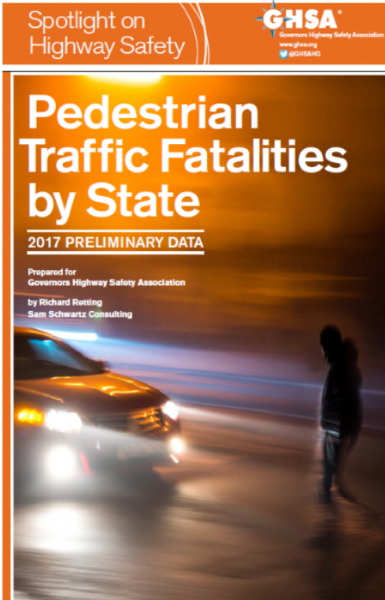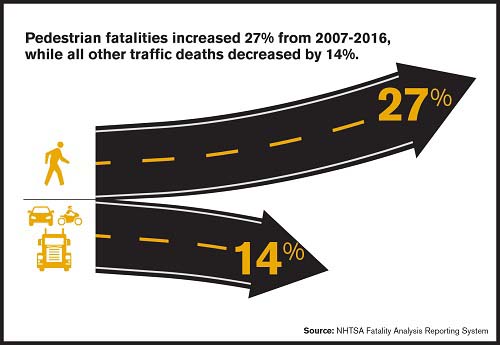Connecticut-Grown Businesses Lead Stand-out Cohort of Entrepreneurial Start-Ups
/reSET, the Hartford-based Social Enterprise Trust, whose mission is advancing the social enterprise sector and supporting entrepreneurs of all stripes, has announced the winners of its 2018 Venture Showcase, and three Connecticut-grown businesses took the top awards.
The annual event recognizes the talented entrepreneurs and innovative businesses that have just graduated from reSET’s nationally recognized accelerator. This year, 18 early stage enterprises graduated from the most recent cohort, and eight finalists competed for $20,000 in unrestricted funding. reSET’s goal is to meet entrepreneurs wherever they are in their trajectory and to help them take their businesses to the next level.
The entrepreneurs pitched their business models to an audience of founders, investors, and community and corporate stakeholders. The panel of judges included Claire Leonardi, former CEO of Connecticut Innovations; Alan Mattamana, Partner at Fairview Capital Partners; and Lalitha Shivaswamy, President of Helios Management Corporation.
Winning the top $10,000 award was Loki, which was created in a “group independent study” through UConn’s Digital Media and Design program by Andrew Ginzberg and co-founders Jeffrey Santi, Brian Kelleher, and Case Polen. Described as “a new kind of media company” - a video sharing platform exclusively for smartphones - Loki is “a place where you can watch events through collections of many perspectives, live-streamed through the eyes of people actually there.” The company’s website is welcoming people who would like to learn more to leave an email address.
Taking the second-place $6,000 award was Florapothecarie, a line of 100% natural + vegan skincare products, “lovingly handmade in Connecticut” by Sami Jo Jensen. The line of products is certified vegan and cruelty-free by Leaping Bunny and PETA.
The third-place entrepreneurial business was Bare Life, launching a line of crave-worthy food products with the world’s first Organic, Vegan, Paleo, Non-GMO, Dairy Free, Gluten Free and Refined Sugar Free Hot Chocolate Powder. Founded by local resident Ali Lazowski, who was put on a very restricted diet due to numerous medical conditions and learned first-hand how scarce allergen and irritant-free foods are. So, she set out to create them. Bare Life's mission is to make these allergen and irritant friendly foods and recipes convenient for everyone, especially the chronically ill.
The event was held last week at the YG Club at Dunkin’ Donuts Park to a sellout crowd of 225. Before selecting the 18 ventures that would participate in the Accelerator class, officials had reSET had to sift through an applicant pool that was the most competitive yet, with 110+ submissions from all over the world. Since 2013, reSET has graduated 105 companies from its accelerator program and has awarded more than a quarter of a million dollars to scaling ventures.
 The Superlative Award for “Most Improved Pitch” was won by FieldOwler, a new business that provides auditing and risk management software and solutions to help businesses, organizations, and agencies. Other finalists were CNG Fit, LLC / Fit Party Me, Lioness Magazine, Noteworthy Chocolates, RecordME, and SKYWIREme .
The Superlative Award for “Most Improved Pitch” was won by FieldOwler, a new business that provides auditing and risk management software and solutions to help businesses, organizations, and agencies. Other finalists were CNG Fit, LLC / Fit Party Me, Lioness Magazine, Noteworthy Chocolates, RecordME, and SKYWIREme .
The Accelerator program and Venture Showcase was made possible by reSET’s partners and sponsors, including CTNext, The Hartford Foundation for Public Giving, Travelers, The Walker Group, Bank of America, The Hartford, GoodWorks Insurance, and People’s United Community Foundation. SnapSeat Photo Booths also provided in-kind services.
reSET, the Social Enterprise Trust is a non-profit organization whose mission is to advance the social enterprise sector. reSET serves all entrepreneurs, but specializes in social enterprise ― impact driven business with a double and sometimes triple bottom line. In addition to providing co-working space and accelerator and mentoring programs, reSET aims to inspire innovation and community collaboration, and to support entrepreneurs in creating market-based solutions to community challenges.




 “We understand, by all accounts, many of them may be using products that closely resemble a USB flash drive, have high levels of nicotine and emissions that are hard to see. These characteristics may facilitate youth use, by making the products more attractive to children and teens. These products are also more difficult for parents and teachers to recognize or detect. Several of these products fall under the JUUL brand, but other brands, such as myblu and KandyPens, that have similar characteristics are emerging.”
“We understand, by all accounts, many of them may be using products that closely resemble a USB flash drive, have high levels of nicotine and emissions that are hard to see. These characteristics may facilitate youth use, by making the products more attractive to children and teens. These products are also more difficult for parents and teachers to recognize or detect. Several of these products fall under the JUUL brand, but other brands, such as myblu and KandyPens, that have similar characteristics are emerging.”
 Stating that “justice should not have an expiration date,” the organization points out that eight states have no statute of limitations for felony sexual assault crimes, and 28 states have a statute of limitations of 21 years or more. Only 10 states, including Connecticut, have a statute of limitation of 10 years or less.
Stating that “justice should not have an expiration date,” the organization points out that eight states have no statute of limitations for felony sexual assault crimes, and 28 states have a statute of limitations of 21 years or more. Only 10 states, including Connecticut, have a statute of limitation of 10 years or less. According to the National Institutes of Health, sexual violence is the leading cause of Post-Traumatic Stress Disorder (PTSD) in women.
According to the National Institutes of Health, sexual violence is the leading cause of Post-Traumatic Stress Disorder (PTSD) in women. 
 Topping the national rankings were Falls Church, Virginia; Douglas County, Colorado; Broomfield County, Colorado; Los Alamos County, New Mexico; and Dukes County, Massachusetts.
Topping the national rankings were Falls Church, Virginia; Douglas County, Colorado; Broomfield County, Colorado; Los Alamos County, New Mexico; and Dukes County, Massachusetts. 
 In comparing the average annual opioid-related death rates per 100,000 population in 2012-13, 2014-15, and 2016-17, the dramatic increases across communities statewide is quite evident. The data analysts point out that data are where deaths from 'any opioid' (meaning some type of opioid were found in the person) take place. Therefore, they explain, one would expect to see higher rates in places with large hospitals (hence high rates in cities). They add that one can also not discount that these places are also seeing higher rates among its residents.
In comparing the average annual opioid-related death rates per 100,000 population in 2012-13, 2014-15, and 2016-17, the dramatic increases across communities statewide is quite evident. The data analysts point out that data are where deaths from 'any opioid' (meaning some type of opioid were found in the person) take place. Therefore, they explain, one would expect to see higher rates in places with large hospitals (hence high rates in cities). They add that one can also not discount that these places are also seeing higher rates among its residents.
 The Connecticut Data Collaborative has posted on its
The Connecticut Data Collaborative has posted on its 


 The total number of multimedia messages sent has more than tripled since 2010. The report also suggests a possible link with marijuana use. According to the report, the seven states (Alaska, Colorado, Maine, Massachusetts, Nevada, Oregon, Washington) and DC that legalized recreational use of marijuana between 2012 and 2016 reported a collective 16.4 percent increase in pedestrian fatalities for the first six months of 2017 versus the first six months of 2016, whereas all other states reported a collective 5.8 percent decrease in pedestrian fatalities.
The total number of multimedia messages sent has more than tripled since 2010. The report also suggests a possible link with marijuana use. According to the report, the seven states (Alaska, Colorado, Maine, Massachusetts, Nevada, Oregon, Washington) and DC that legalized recreational use of marijuana between 2012 and 2016 reported a collective 16.4 percent increase in pedestrian fatalities for the first six months of 2017 versus the first six months of 2016, whereas all other states reported a collective 5.8 percent decrease in pedestrian fatalities.
 The report defines Eastern Connecticut as the Community Foundation of Eastern Connecticut service area: 42 towns that include 453,000 people, 227,000 women. The population of the region is 80% white, 9% Latina, 4% Black and 4% Asian. Approximately 33,700 residents, or 7 percent, are foreign born. Looking ahead, the report noted that the population of women ages 65 and up is projected to grow significantly over the next decade; estimated to increase 44 percent by 2025.
The report defines Eastern Connecticut as the Community Foundation of Eastern Connecticut service area: 42 towns that include 453,000 people, 227,000 women. The population of the region is 80% white, 9% Latina, 4% Black and 4% Asian. Approximately 33,700 residents, or 7 percent, are foreign born. Looking ahead, the report noted that the population of women ages 65 and up is projected to grow significantly over the next decade; estimated to increase 44 percent by 2025.


 image of Michelle Obama’s face,” the researchers pointed out.
image of Michelle Obama’s face,” the researchers pointed out.





























